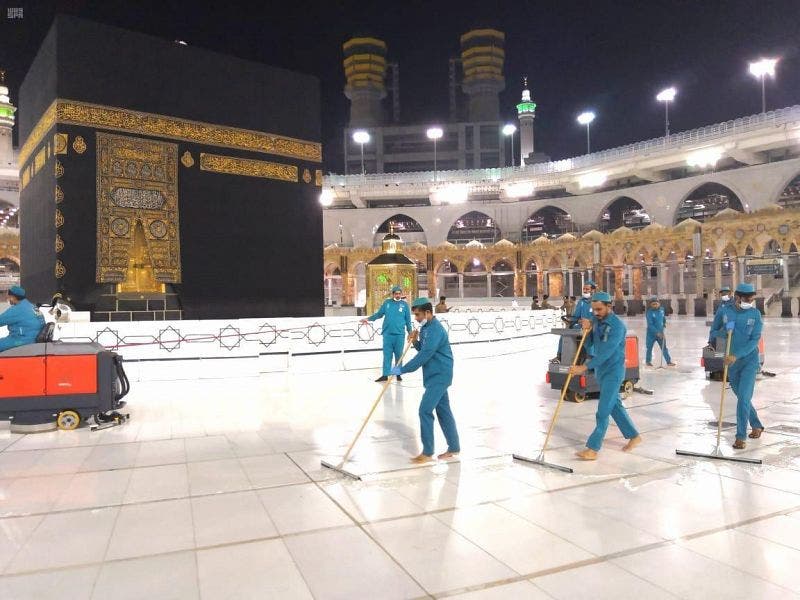Sun 02 August 2020:
This year’s Hajj pilgrimage was downsized to 10,000 pilgrims residing inside the Kingdom due to the COVID-19 coronavirus pandemic.
The government is being cautious this time around.
Pilgrims took several medical tests and were asked to quarantine for a week before starting their journey, then isolate for another week in their hotel rooms.
They were given an electronic bracelet to monitor their movements and a suitcase containing all basic necessities.
Mecca authorities have been using 54,000 liters of disinfectants per day to sanitize the holy Grand Mosque during this year’s Hajj season as a precautionary measure against the spread of coronavirus, according to officials.
The General Presidency of the Grand Mosque and the Prophet’s Mosque said that cleaning operations were carried out by 3,500 workers during the past several days who sanitized the inner and outer courtyards of the Grand Mosque up to 10 times a day.

CCTV cameras
Over 6,250 CCTV cameras were used this year to monitor the holy sites in Mecca during the Hajj pilgrimage that has been held in a limited capacity due to the coronavirus pandemic, according to authorities.
The Hajj monitoring center is linked to about 772 of those cameras at any given time to ensure security forces are able to monitor and respond to the movements of all Hajj pilgrims.
Six hospitals were dedicated to serving pilgrims, and 51 clinics and 200 ambulances were spread across different sites, with the support of 62 field teams and 8,000 health-care professionals.
Authorities in Saudi Arabia have named and shamed at least seven people who recently violated rules on entry into the holy sites in Mecca during the Hajj pilgrimage without a registered permit, according to a statement from the Kingdom’s General Directorate of Passports.
Only up to 10,000 people already residing in Saudi Arabia were given permission to participate in this year’s Hajj pilgrimage, compared with 2019’s gathering of some 2.5 million from around the world, due to the coronavirus pandemic.





